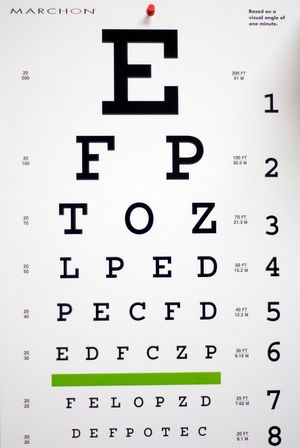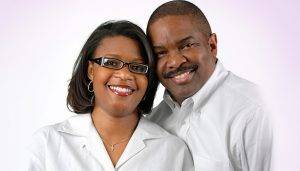
Eye Exams in Greensboro, NC
Your vision prescription may be up-to-date, but there are many more reasons to undergo a comprehensive eye exam. Checking visual acuity is only one part of taking care of your eyes. At Miller Vision Specialties, in Greensboro, NC, we are committed to the total health of your eyes and your vision. At our family-friendly practice, we offer regular eye assessments for patients of all ages, from babies to seniors.
Our centrally located office is fully equipped with all the latest diagnostic equipment, and Dr. Steven Miller will use a range of tests and procedures to examine your retinal structures. In addition to standard eye charts, we also employ digital imagery and high powered lenses to detect any signs of ocular disease. We are proud to welcome new and existing patients from Greensboro, NC, and from the neighboring communities of Burlington, Jamestown and the North Carolina State University (NCSU) campus.
What is Checked During Your Eye Exam?
Our comprehensive evaluation of your vision and ocular health generally includes:
Medical history. It is important that you share any information about your overall health, in addition to any vision-related issues. Current medications and your family medical history are also significant to mention to our eye doctor, Dr. Miller.
Visual acuity. You will be asked to read an eye chart, one eye at a time, to determine the quality of your eyesight at various distances.
Pupil response to light. A bright light may be shined into your eyes to assess how your pupils respond to light. Pupils should constrict when exposed to light.
Peripheral vision. One symptom of glaucoma is the loss of side vision, which you may not detect on your own. Our examination will be able to pinpoint problems that you are unaware of.
Eye movement. At Miller Vision Specialties, Dr. Miller will inspect your ocular motility to determine proper muscle function and eye alignment.
Prescription for vision correction. In our Greensboro, NC, office, we use a phoroptor, which has a series of different lenses, to help decide the best eyeglass or contact lens prescription for your vision condition.
Eye pressure. Tonometry is a test that involves applying a pressure-sensitive tip near or against your eye, or a quick puff of air into the eye, to measure your inner eye pressure. Elevated intraocular eye pressure may indicate the presence of glaucoma. Numbing eye drops may be used for this exam.
The frontal part of your eye. We inspect the front of your eye, including the cornea, lens, iris and eyelids, using a microscope that can expose any scratches or early signs of cataracts.
Retinal structures and optic nerve. Dr. Miller will apply eye drops to dilate your eyes and enable him to examine the tissues at the back of your eyes for any signs of ocular disease.
Additional testing. To examine your eyes further, more specialized testing may be done. This includes procedures such as topography photos or OCT, which can be very helpful in diagnosing eye diseases or abnormalities at a very early stage.
How often do adults need a complete eye exam?
 Eye care experts recommend that all adults have a comprehensive eye examination performed every one to three years. If you wear eyeglasses or contact lenses, the American Optometric Association (AOA) recommends yearly examinations.
Eye care experts recommend that all adults have a comprehensive eye examination performed every one to three years. If you wear eyeglasses or contact lenses, the American Optometric Association (AOA) recommends yearly examinations.
After age 40: eye exams are advised every one to two years, for early detection of any age-related eye conditions. Common ocular problems related to aging include macular degeneration, presbyopia and cataracts. Health conditions, such as hypertension and diabetes, pose high risk factors for eye health and are a reason to schedule complete eye exams more frequently. At your appointment with Dr. Miller, he will recommend an examination schedule for you based on your personal overall health and vision.
After age 60: the risk of ocular diseases and vision conditions increases, and it is recommended to have a yearly evaluation.
How often do kids need an eye exam?
According to the AOA, all children should undergo their first eye exam at six months of age. The next ocular evaluation should be done at 3 years old and then again prior to the start of school. Children who are not diagnosed with any vision problems should return for exams at least every two years. If your child wears eyeglasses or lenses, more frequent eye evaluations are generally advised.
The following pediatric risk factors are a reason to schedule more regular eye exams:
History of eye injury
- Crossed eyes
- Developmental delays
- Family history of eye problems
- Premature birth
- Physical illness or disease
Approximately 5% to 10% of preschoolers and 25% of school-aged children have vision problems, according to statistics! Vision problems can cause significant learning delays and impact brain development. It is therefore critical to bring your child for pediatric eye exams during school years. Call us at 336-288-1919 to reserve an appointment with Dr. Miller, in our conveniently located Greensboro, NC, office.


***All office phones are switched to voicemail after 5pm daily